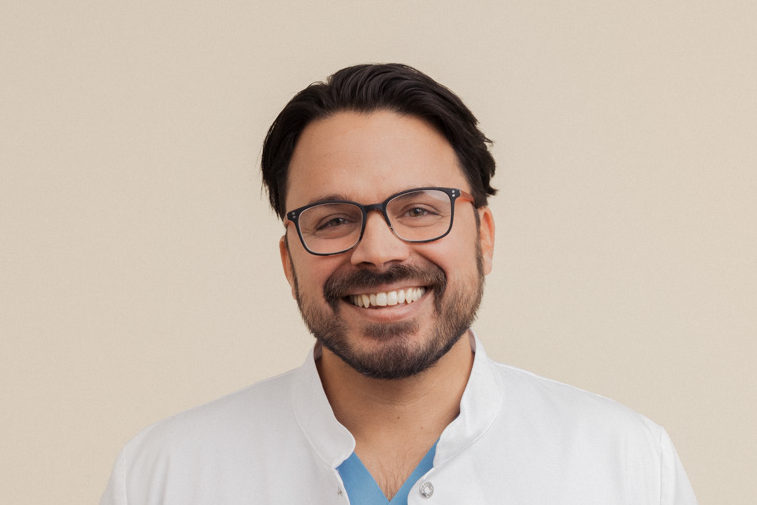Opening hours: MO-FR from 09:00 - 18:00 (WE & public holiday closed)

Torn tendon in the shoulder - rotator cuff tear
The rotator cuff is the name given to 4 muscles in the shoulder. The task of the rotator cuff is to keep the humeral head centred in the socket of the shoulder blade, stabilize the joint and move the upper arm. A tear in these muscles is known as a rotator cuff tear.
On the one hand, such a rupture can be caused by an accident (traumatic) and leads to a painful acute functional restriction with loss of strength in the affected shoulder. On the other hand, a rupture can also be degenerative (due to wear and tear), which usually occurs gradually due to constant pinching of the tendon under the acromion or in connection with impaired blood flow to the tendon. In this case, the symptoms usually develop more slowly and are primarily manifested by pain when moving and pain at night.
In most cases, the diagnosis can already be suspected after a detailed clinical examination with corresponding functional tests. X-rays, ultrasound examinations and magnetic resonance imaging (MRI) are carried out to confirm the diagnosis and assess further therapeutic recommendations. The MRI examination is particularly important in the planning of surgical treatment.
Different treatment options are available depending on the configuration of the tear, the occupational and sporting requirements and the patient's age. An injection of special medication (infiltration of the shoulder) can relieve pain; physiotherapeutic measures can improve the functionality of the arm. Surgical reconstruction of the affected tendon parts is recommended for acute pain with a significant loss of function or if conservative therapy does not respond adequately.
A suture or bony refixation is performed using an arthroscopic surgical technique (buttonhole surgery). At the same time, the space under the acromion is widened so that there is sufficient space for the affected supraspinatus tendon.
Open surgery is only rarely necessary for very extensive tendon ruptures.
Postoperative immobilization initially plays an important role in follow-up treatment. Accompanying physiotherapy with gradual mobilization and muscle activation is essential.
In most cases, rotator cuff reconstruction leads to pain relief or a significant reduction in pain with good restoration of shoulder function.
We will be happy to advise you on the various treatment options in our shoulder outpatient clinic. Please make an appointment by telephone on 05285 78485.
Dr. Fabian Gerber, Medical Director Sportclinic Zillertal